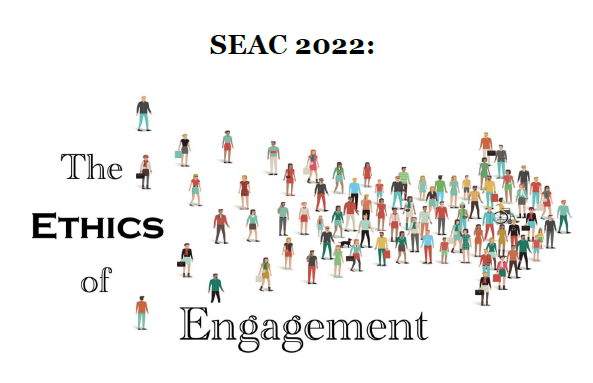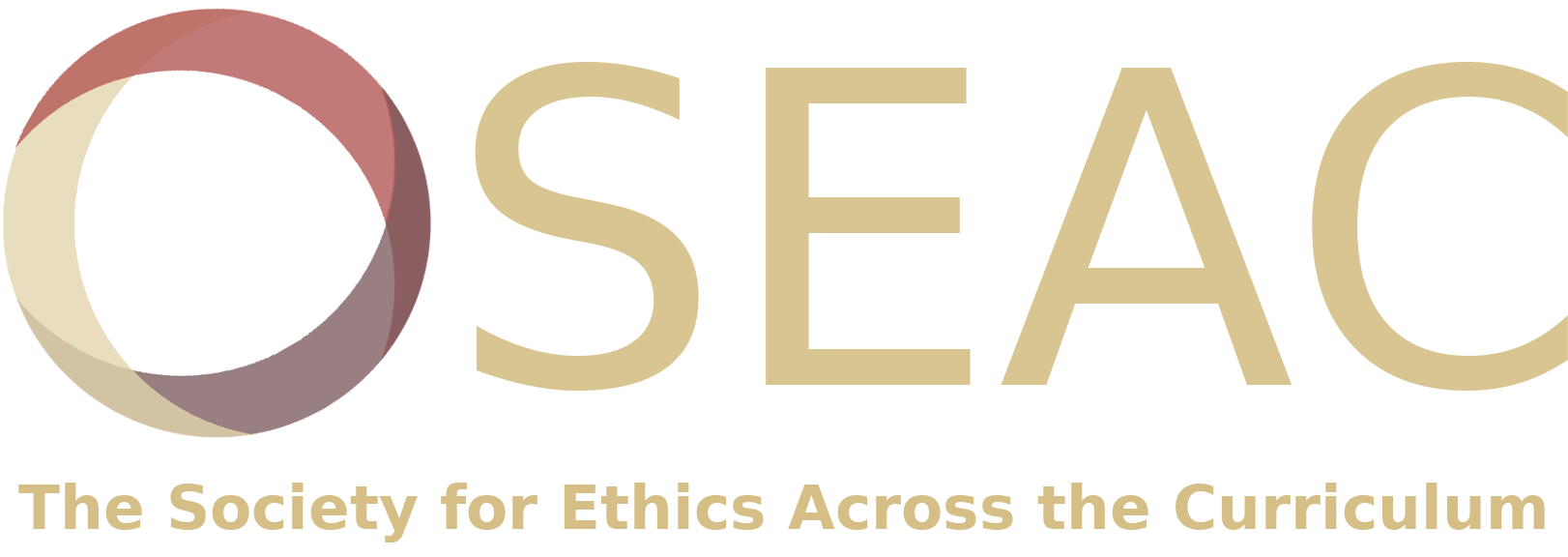
Concurrent Session 5B
Location
Ford Ballroom B, The Inn at Ole Miss
Start Date
7-10-2022 1:35 PM
End Date
7-10-2022 2:45 PM
Description
- Teaching Ethics of Decolonization: Gandhi, Tagore and Enrique Dussel / Prasenjit Biswas, North-Eastern Hill University, Shillong
Gandhi’s notion of Satyagraha (truth force), Tagore’s notion of ‘surplus in man’ gel with Enrique Dussel’s ethical critique of centrality of an “I” with ‘good conscience’ as the dominant image of self. It’s a cross-contextually shared ethical critique of a dominant political and ethical subject that creates an ethics of decolonization. Gandhi’s notion of ‘surrender without subordination’, Tagore’s idea of surplus as freedom of the human soul and Dussel’s notion of epistemic disobedience to dominant empire of knowledge bring out an ethics of liberation in terms of what Dussel characterized as metaphysical category of ‘fulfilled proximity’ that ultimately creates the joy of freedom. Tagore notion of surplus implies the joy of creative freedom in the fullest realization of proximity to the Infinite in the finitude of self and other. Gandhi’s idea of freedom as infinite empathy and compassion mixed with the goal of joy of freedom emerges closely bound up with Tagore’s ethical praxis of decolonization. Pedagogically one can locate the cross-contextual proximity of ideas of freedom and liberation that creates a sense of fairness, fearlessness and joy in performing an act of resistance that stems from an epistemic disobedience of the dominant that Dussel would have stood for. As opposed to an essentializing notion of “I”, decolonization introduces an ethical practice of re-orienting the self-other relation in a mode of creating fairness and freedom by removing domination. This is a deontic imperative that decolonization establishes within ethical paradigms. - Critical Pedagogy and Ethical Engagement in a Postcolonial Literature Classroom / Sukalpa Bhattacharjee, North-Eastern Hill University, Shillong
The paper proposes to theorize the ethical issues of evaluation/interpretation of post-colonial English texts in a classroom through critical pedagogy which continues to evoke the question of ethical agency –who speaks in the text? who reads it and interprets it in the class? There is often a problem in trying to justify the moral claims of the emerging counter-canons in postcolonial literatures that interrogate dominant hegemonic constructions of race, ethnicity class and caste. An ethical reading (in Levinasian sense) of a postcolonial text in a classroom shifts the paradigm from a postcolonial critique of race, class and gender to a critique of the postcolonial itself. Therefore a classroom in a postcolonial context inevitably becomes more of a radical and political space for creating an ethical sensibility among students. But teaching is much more difficult than learning because teaching calls for ‘to let learn’ (Heidegger). Contemporary critical pedagogy perceives the classroom as a shared liminal space of collaborative alter/native knowledge systems by the teacher and students through a production of mutual affectation between the two, designating the classroom as ‘that changeful site’ that generates a critique of racism, sexism and other forms of dehumanizing violence accompanying global capitalism. The study would use concepts such as Ethical responsibility/Ethical singularity which according to Spivak is “ the engagement of the Other in non-essential, non-crisis terms” producing response from both sides in pedagogical practices. This is the project of ethical action in the classroom.
Session Chair: Nikki Wilcox, University of Mississippi
Relational Format
conference proceeding
Recommended Citation
Biswas, Prasenjit; Bhattacharjee, Sukalpa; and Wilcox, Nikki, "Concurrent Session 5B" (2022). Society for Ethics Across the Curriculum Conference. 29.
https://egrove.olemiss.edu/seac/2022/schedule/29
COinS
Oct 7th, 1:35 PM
Oct 7th, 2:45 PM
Concurrent Session 5B
Ford Ballroom B, The Inn at Ole Miss
- Teaching Ethics of Decolonization: Gandhi, Tagore and Enrique Dussel / Prasenjit Biswas, North-Eastern Hill University, Shillong
Gandhi’s notion of Satyagraha (truth force), Tagore’s notion of ‘surplus in man’ gel with Enrique Dussel’s ethical critique of centrality of an “I” with ‘good conscience’ as the dominant image of self. It’s a cross-contextually shared ethical critique of a dominant political and ethical subject that creates an ethics of decolonization. Gandhi’s notion of ‘surrender without subordination’, Tagore’s idea of surplus as freedom of the human soul and Dussel’s notion of epistemic disobedience to dominant empire of knowledge bring out an ethics of liberation in terms of what Dussel characterized as metaphysical category of ‘fulfilled proximity’ that ultimately creates the joy of freedom. Tagore notion of surplus implies the joy of creative freedom in the fullest realization of proximity to the Infinite in the finitude of self and other. Gandhi’s idea of freedom as infinite empathy and compassion mixed with the goal of joy of freedom emerges closely bound up with Tagore’s ethical praxis of decolonization. Pedagogically one can locate the cross-contextual proximity of ideas of freedom and liberation that creates a sense of fairness, fearlessness and joy in performing an act of resistance that stems from an epistemic disobedience of the dominant that Dussel would have stood for. As opposed to an essentializing notion of “I”, decolonization introduces an ethical practice of re-orienting the self-other relation in a mode of creating fairness and freedom by removing domination. This is a deontic imperative that decolonization establishes within ethical paradigms. - Critical Pedagogy and Ethical Engagement in a Postcolonial Literature Classroom / Sukalpa Bhattacharjee, North-Eastern Hill University, Shillong
The paper proposes to theorize the ethical issues of evaluation/interpretation of post-colonial English texts in a classroom through critical pedagogy which continues to evoke the question of ethical agency –who speaks in the text? who reads it and interprets it in the class? There is often a problem in trying to justify the moral claims of the emerging counter-canons in postcolonial literatures that interrogate dominant hegemonic constructions of race, ethnicity class and caste. An ethical reading (in Levinasian sense) of a postcolonial text in a classroom shifts the paradigm from a postcolonial critique of race, class and gender to a critique of the postcolonial itself. Therefore a classroom in a postcolonial context inevitably becomes more of a radical and political space for creating an ethical sensibility among students. But teaching is much more difficult than learning because teaching calls for ‘to let learn’ (Heidegger). Contemporary critical pedagogy perceives the classroom as a shared liminal space of collaborative alter/native knowledge systems by the teacher and students through a production of mutual affectation between the two, designating the classroom as ‘that changeful site’ that generates a critique of racism, sexism and other forms of dehumanizing violence accompanying global capitalism. The study would use concepts such as Ethical responsibility/Ethical singularity which according to Spivak is “ the engagement of the Other in non-essential, non-crisis terms” producing response from both sides in pedagogical practices. This is the project of ethical action in the classroom.
Session Chair: Nikki Wilcox, University of Mississippi


